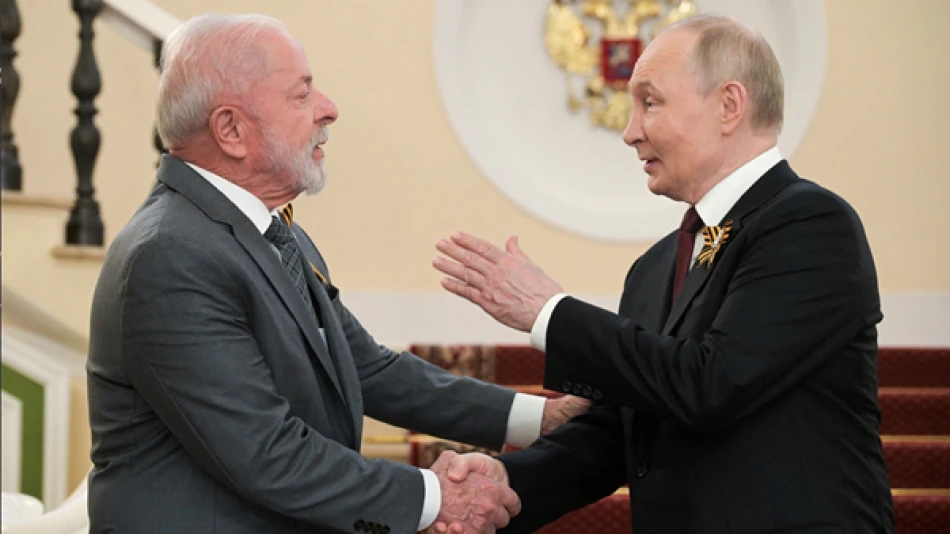
Putin and Lula da Silva Discuss Escalating Ukraine Crisis
Putin's Pre-Trump Diplomatic Blitz: Russia Courts BRICS Partners Before Ukraine Talks
Russian President Vladimir Putin is orchestrating a calculated diplomatic offensive ahead of his anticipated meeting with Donald Trump this week, conducting a series of strategic calls with key allies including Brazil's Luiz Inácio Lula da Silva. The 40-minute conversation on Saturday represents Moscow's effort to solidify support within the BRICS economic bloc before potentially pivotal Ukraine negotiations.
Brazil Emerges as Key Mediator in Russia's Strategy
According to Brazil's presidential palace, Putin briefed Lula on his recent communications with the United States and "peace efforts between Russia and Ukraine." The choice to engage Brazil's leftist leader reflects Moscow's recognition of Lula's unique position as a Global South leader who has maintained neutrality while calling for peaceful resolution of the conflict.
The leaders also discussed cooperation within BRICS and analyzed "the current political and economic scenario worldwide," signaling Russia's intent to leverage the economic alliance as a counterweight to Western influence during any peace negotiations.
Moscow's Diplomatic Chess Game
Putin's recent communication spree extends beyond Brazil, encompassing leaders from China and India—fellow BRICS members—as well as Central Asian and European heads of state. This coordinated outreach suggests Russia is building a coalition of support before entering what could be make-or-break discussions with the Trump administration.
Strategic Timing and Geopolitical Calculations
The timing is no coincidence. Putin appears to be positioning himself as the reasonable party seeking peace while ensuring his key economic and political partners remain aligned with Moscow's narrative. By briefing BRICS allies on his U.S. communications, Putin is likely seeking to prevent any diplomatic isolation and maintain leverage in upcoming negotiations.
BRICS as Russia's Economic Lifeline
The emphasis on BRICS cooperation carries particular weight given the bloc's growing economic significance and Russia's increasing reliance on these partnerships amid Western sanctions. Brazil, China, and India collectively represent massive markets and alternative financial systems that have helped sustain Russia's economy during the conflict.
For Brazil specifically, maintaining dialogue with Russia serves multiple purposes: positioning itself as a neutral mediator, protecting economic interests, and asserting its role as a major Global South power capable of independent foreign policy decisions.
What This Means for Ukraine Negotiations
Putin's diplomatic groundwork suggests he views the potential Trump meeting as a genuine opportunity for progress on Ukraine—or at least wants to appear prepared for serious negotiations. By securing backing from major non-Western powers, Russia aims to enter any talks from a position of perceived strength rather than isolation.
The strategy also serves as insurance: should negotiations fail, Putin can point to continued support from major economies representing billions of people worldwide, undermining narratives of complete international isolation.
Most Viewed News

 Layla Al Mansoori
Layla Al Mansoori






